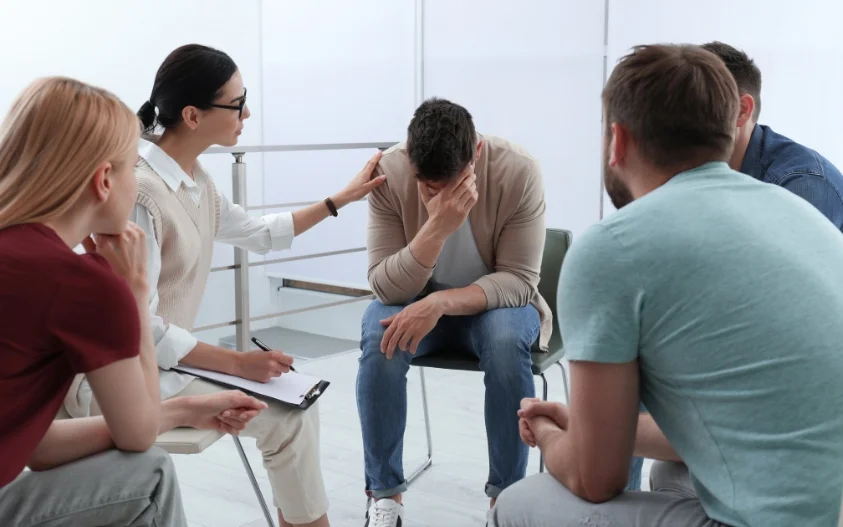24/7 Helpline:
(866) 899-221924/7 Helpline:
(866) 899-2219
Learn more about PTSD Treatment centers in Union Springs
Other Categories in Union Springs

Other Insurance Options

Humana

Absolute Total Care

Highmark

Horizon Healthcare Service

Aetna

Lucent

Health Partners

BHS | Behavioral Health Systems

BlueCross

Access to Recovery (ATR) Voucher

Excellus

Regence

American Behavioral

State Farm

Covered California

Private insurance

Ambetter

Kaiser Permanente

CareFirst

Meritain

East Central Mental Health
East Central Mental Health offers programming for individuals living with disabilities in Union Spri...







Chateau Recovery
Chateau Recovery provides a safe, peaceful, and comfortable environment to practice new lifestyle ch...

Acqua Recovery
Acqua Recovery provides evidence-based residential rehab center offering an intimate sanctuary for a...












































